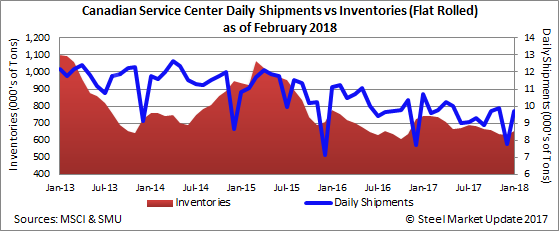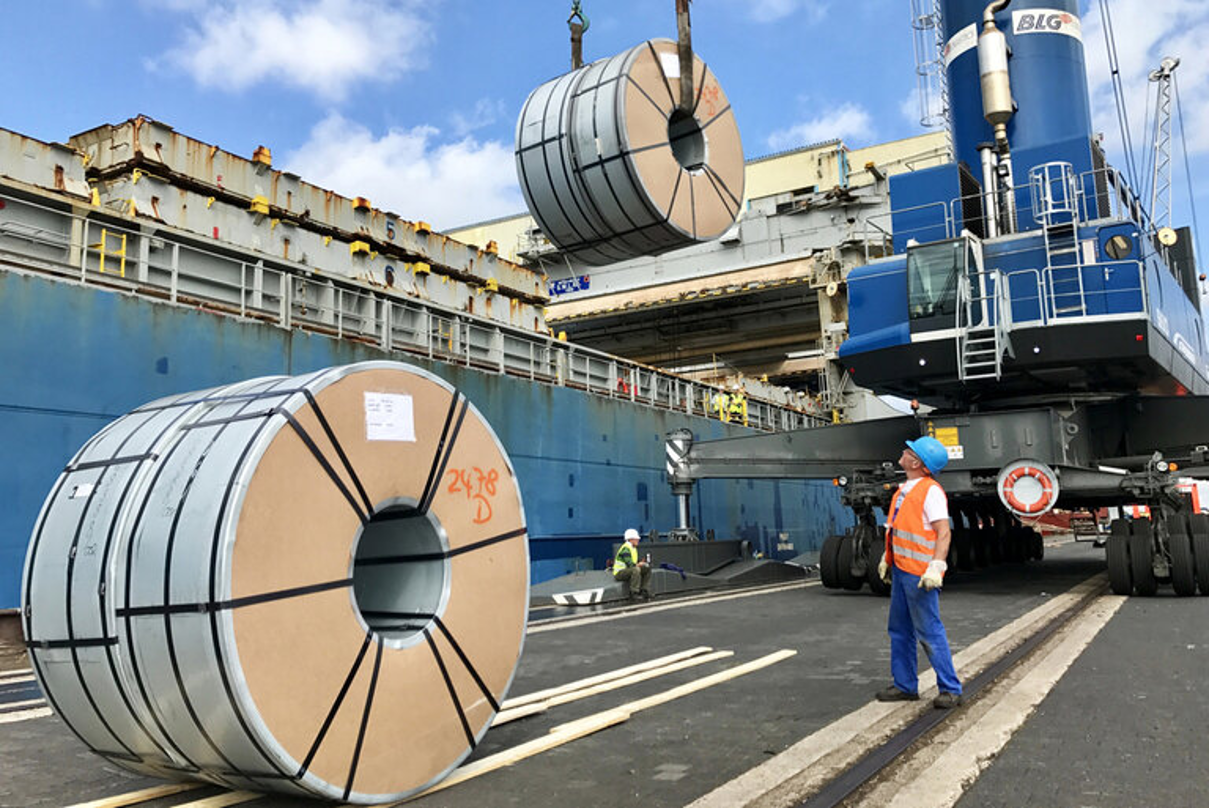Canada

February 20, 2018
Canadian Service Center Shipments, Inventories Inch Down in January
Written by Brett Linton
Steel shipments by Canadian service centers in January totaled 410,100 net tons, up 46.4 percent from December’s lull, but down 0.4 percent from January 2017, reports the Metals Service Center Institute (MSCI). On a daily basis, total shipments were 18,600 tons per day in January (a 22-day month), up from 14,700 tons per day in December (a 19-day month), but down compared to a year ago when they were 19,600 tons per day (a 21-day month). Total steel inventories at the end of the month were 1,154,000 tons, up 1.7 percent from last month, but down 2.1 percent from this time last year.
The daily average receipt rate for January was 19,532 tons per day, up from 14,737 in December. Total January steel receipts were 429,700 tons, up 149,700 tons over December. According to MSCI, total steel product inventories in Canada stood at 2.8 months at the end of January, down from 4.0 months in December.
Flat Rolled
Canadian shipments of flat rolled products in January totaled 213,900 tons, up 45.1 percent from last month, but down 4.7 percent over levels one year ago. Daily shipments increased from 7,800 tons per day in December to 9,700 in January, but are down compared to one year ago when they were 10,700 tons per day. Inventories at the end of the month were 653,100 tons, up 3.3 percent from last month, but down 12.0 percent from the same month one year ago. The daily receipt rate for January jumped to 10,682 tons per day, up from 7,642 tons per day in December. Total tonnage received was 235,000 tons, up from 145,200 tons the month before. Flat rolled inventories stood at 3.1 months in January, down from 4.3 months of supply in December.
Plate
Canadian shipments of plate products in January were 78,600 tons, an increase of 60.7 percent from the previous month, and an increase of 11.5 percent from January 2017. Daily shipments increased from 2,600 tons per day in December to 3,600 tons per day in January. Inventories at the end of January were 182,800 tons, up 4.0 percent from the prior month, and up 2.6 percent from the same month one year ago. The daily average receipt rate for January was 3,891 tons per day, up from 2,842 tons per day the month before. Plate inventories ended the month at 2.3 months, down from 3.6 months in December.
Pipe and Tube
Canadian shipments of pipe and tube products in January were 57,000 tons, an increase of 37.3 percent from December, and an increase of 9.5 percent from the same month last year. Daily shipments rose from 2,200 tons in December to 2,600 tons per day in January. Inventories at the end of the month were 144,200 tons, down 5.6 percent from last month, but up 27.1 percent from the same month one year ago. The daily average receipt rate for January was 2,205 tons per day, down from 2,463 tons per day the month before. Total months on hand for pipe and tube inventories stood at 2.5 months, down from 3.7 months in December.








